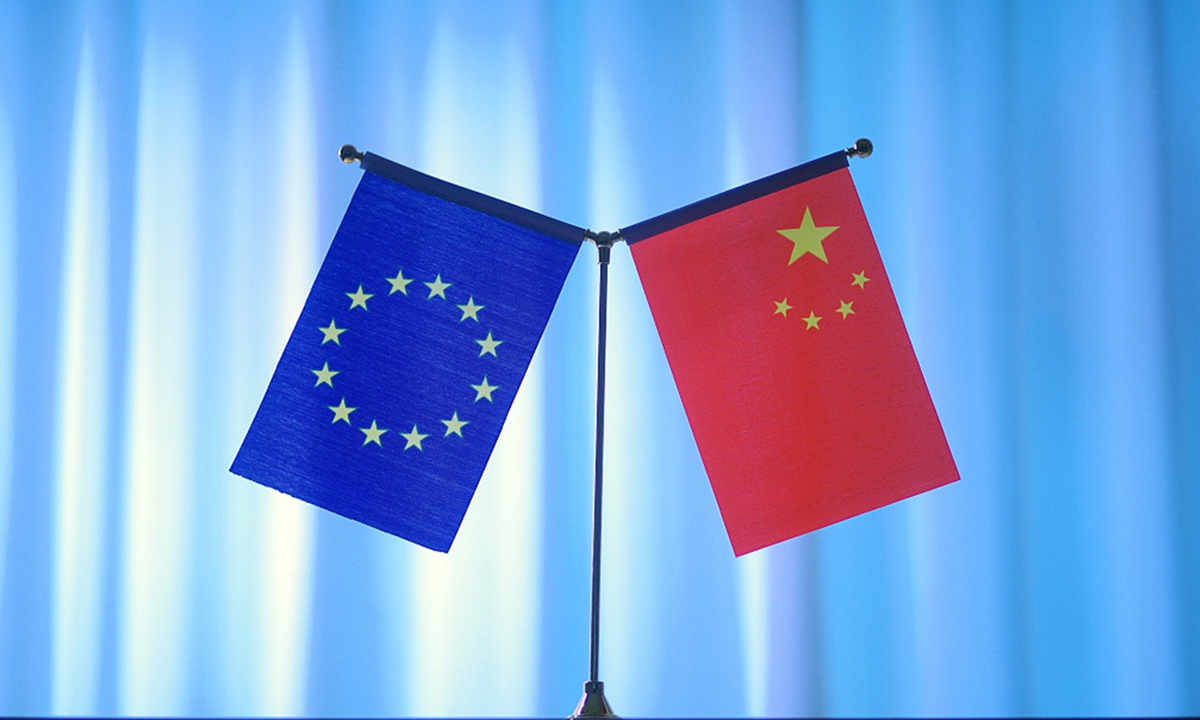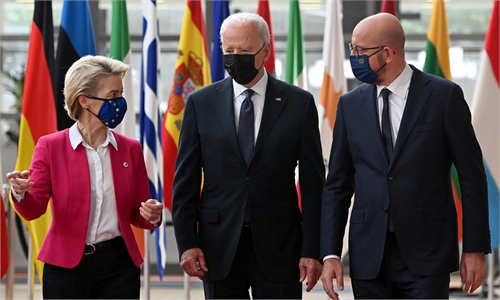
China EU. Photo: VCG
China and the EU can forge complementarity in infrastructure connectivity, China's Foreign Ministry said on Thursday, arguing against pitting infrastructure initiatives against one another, after the EU's newly unveiled Global Gateway strategy was hyped by some as another response to the China-proposed Belt and Road Initiative (BRI).
China welcomes all initiatives that help developing countries build infrastructure and foster common development, Foreign Ministry spokesperson Wang Wenbin told reporters on Thursday.
There's a lot of common ground between China and the EU in connectivity, and the two sides can be complementary and jointly push for global sustainable development, according to the spokesperson.
His remarks came after the EU officially announced the Global Gateway strategy on Wednesday, which aims to mobilize 300 billion euros ($339 billion) in infrastructure spending by 2027.
The new infrastructure push, following in the footsteps of the US-led G7 initiative known as the Build Back Better World (B3W), is being hyped by some Western media as another attempt to counter the BRI.
The B3W initiative, for its part, has plans to narrow the $40-trillion-plus worth of infrastructure needed in the developing world by 2035.
Different initiatives are not supposed to be mutually replaceable or exclusive, but should instead advocate inclusiveness and coordination, Wang said.
The BRI holds to the principles of extensive consultation, joint contribution and shared benefits, and it upholds the ideas of openness, integrity and greenness, he said, noting that the BRI, committed to enabling sustainability and improving living standards, is intended to add new impetus to global economic growth and open up new space for international economic cooperation.
During the eight years since the BRI was proposed, efforts to jointly implement the initiative have yielded fruitful achievements, resulting in tangible support for people from BRI economies and rendering the initiative highly welcome, especially among developing countries, according to Wang, vowing continued efforts on the part of China to jointly build the BRI.
China's cumulative direct investment in economies along the BRI routes hit $136 billion over the eight years since the BRI's advent.
BRI economies set up 27,000 businesses in China during the period, with cumulative actual investment totaling $59.9 billion, official data showed.
Global Times

